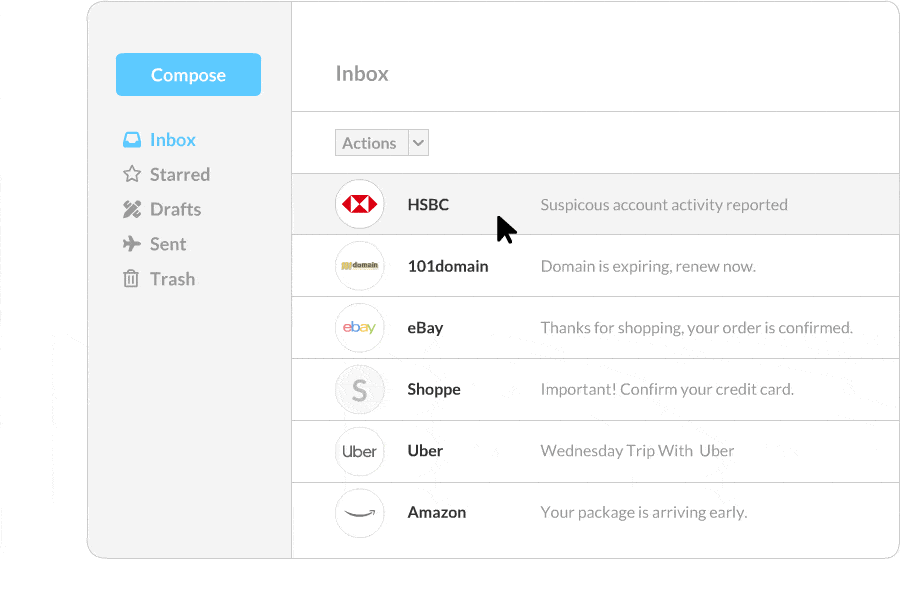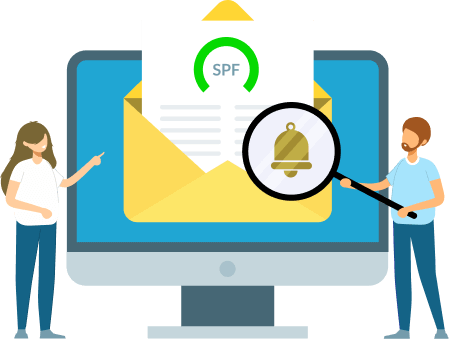
The four pillars of email authentication protocols are SPF, DKIM, DMARC, and BIMI. Here’s everything you need to know to get started with each one.
In light of Google and Yahoo’s recent enforcement of stricter email standards, it’s never been more important than it is right now to set up your email systems properly. The problem is these terms can feel extremely technical and difficult to understand. That’s why in this article we’re going to hit the highlights of each one, and explain how they interact with one another.
By the time you’re finished reading, you’ll have gained a baseline understanding of the four main email authentication protocols so you can confidently implement them into your business.
Let’s get started.
SPF – Sender policy framework
Security Level: Baseline
Sender Policy Framework, or SPF, tackles the issue of email spoofing. It works by creating a list of the specific IP addresses that are allowed to send emails on behalf of a particular domain. When an email is received, the recipient’s mail server checks if the sender’s IP address is listed in the SPF record of the domain. By verifying the origin of the email, SPF helps prevent fraudulent emails and improves email deliverability.
DKIM – DomainKeys identified mail
Security Level: Strong
DomainKeys Identified Mail, or DKIM, enhances email security by adding a digital signature to outgoing emails. When the email is received, the recipient’s mail server checks the public key from the sender’s DNS records and verifies the email’s integrity. DKIM allows the recipient to verify that the email originated from the specified domain without any tampering during transit, reducing the risk of phishing attacks and ensuring email authenticity.
DMARC – Domain-based message authentication, reporting, and conformance
Security Level: Pro
The primary difference between DMARC and the previous two protocols is that it actually utilizes both SPF and DKIM. In other words, you have to set up SPF and DKIM in order to properly utilize DMARC. This multi-functioning nature is what makes DMARC the strongest of all email authentication protocols.
DMARC policies can be set to monitor, quarantine, or reject emails that fail authentication checks. This helps organizations maintain control over their email ecosystem, enhance email deliverability, and prevent unauthorized use of their domain. DMARC also generates reporting data that offers visibility into authentication results, so you can keep track of any potential email abuse in your business.
Need help with DMARC? Let 101domain do all the heavy lifting with our Managed DMARC Services.
BIMI – Brand indicators for message identification
The Gold Standard
BIMI is a little bit different than the other three because it focuses more on the user experience rather than backend authentication. By using BIMI, businesses can put their authentication work to good use by enhancing brand recognition and trust within the recipient’s inbox.
After leveraging SPF, DKIM, and DMARC, BIMI will enable organizations to display their trademarked brand logo and a verified sender checkmark next to authenticated emails in the recipient’s mailbox. This visual indicator helps recipients quickly recognize legitimate emails from trusted brands, reducing the risk of phishing and improving the overall user experience.
101Domain can get this set up for you quickly and easily. Find out more about our BIMI implementation services.

To sum it up…
SPF, DKIM, DMARC, and BIMI are vital email authentication protocols that collectively contribute to a more secure and trustworthy email ecosystem.
SPF prevents domain spoofing, DKIM adds a digital signature for message integrity, and DMARC sets policies and provides visibility into email authentication. BIMI goes a step further by enhancing brand recognition within the inbox.
By implementing these protocols, organizations can bolster email deliverability, protect against phishing, and establish their brand as a symbol of trust in the digital world.

Ready to take the first step towards DMARC compliance?
Try our SPF Checker Tool today. It’s free!